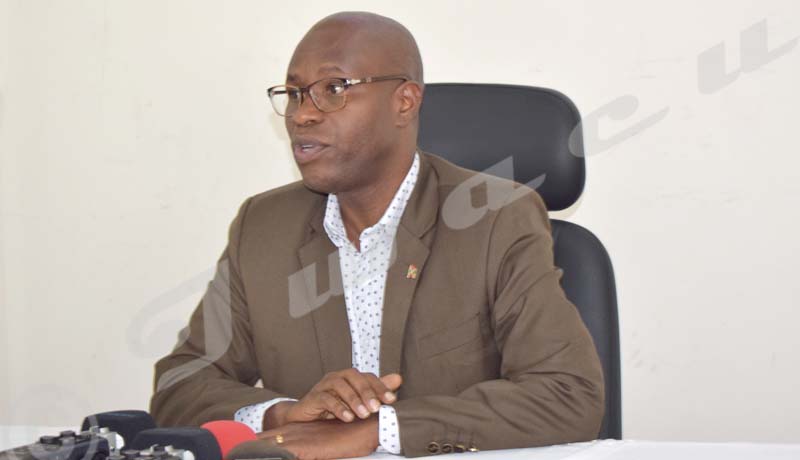The Minister of Human Rights rejects the report on human rights violations in the country presented on July 2nd, 2019 by the UN Commission in charge of investigating on Burundi

Martin Nivyabandi, Human Rights and Social Integration Minister: Human rights in the country is the concern of Burundians
“The issue of human rights in Burundi concerns Burundians,” says Martin Nivyabandi, Minister of Human Rights and Social Integration. Accurate data about human rights in Burundi are the ones collected by Burundians, he adds.
Mr. Nivyabandi says reports produced by international human rights activists are doubtful. He also says the mission given to the Commission is the result of resolutions which have been put forward by the European Union.
“We realized that there is discrepancy between the data provided by those organizations and ours,” says Mr. Nivyabandi adding that real reports are those produced after each three months by the Ministry of Human Rights. The government of Burundi will never cooperate with that Commission, he adds.
“Political and public freedom are only theoretical in Burundi,” says Doudou Diène, Chairman of the Commission in charge of investigating on Burundi. “The press and non-governmental organizations are neutralized, excluded or banned in Burundi,” he also says.
As for the United Nations investigators, serious human rights violations continue in Burundi since May 2018, including executions, disappearances, arbitrary arrests and detentions, as well as cases of torture, ill-treatment, sexual violence, and restrictions on civil liberties.
“Burundi is not in a situation of armed conflict,” says Mr. Doudou. However, the Burundian situation remains critical, he adds.
Since 2015, Burundi has been a concern of the UN Security and Human Rights Councils. Several commissions have been appointed to investigate on Burundi. Many reports on Burundi have been produced by the international community. They revealed cases of human rights violations and insecurity in Burundi. However, Burundi government rejected those reports accusing them of being biased and unfounded.



















 IWACU Open Data
IWACU Open Data

